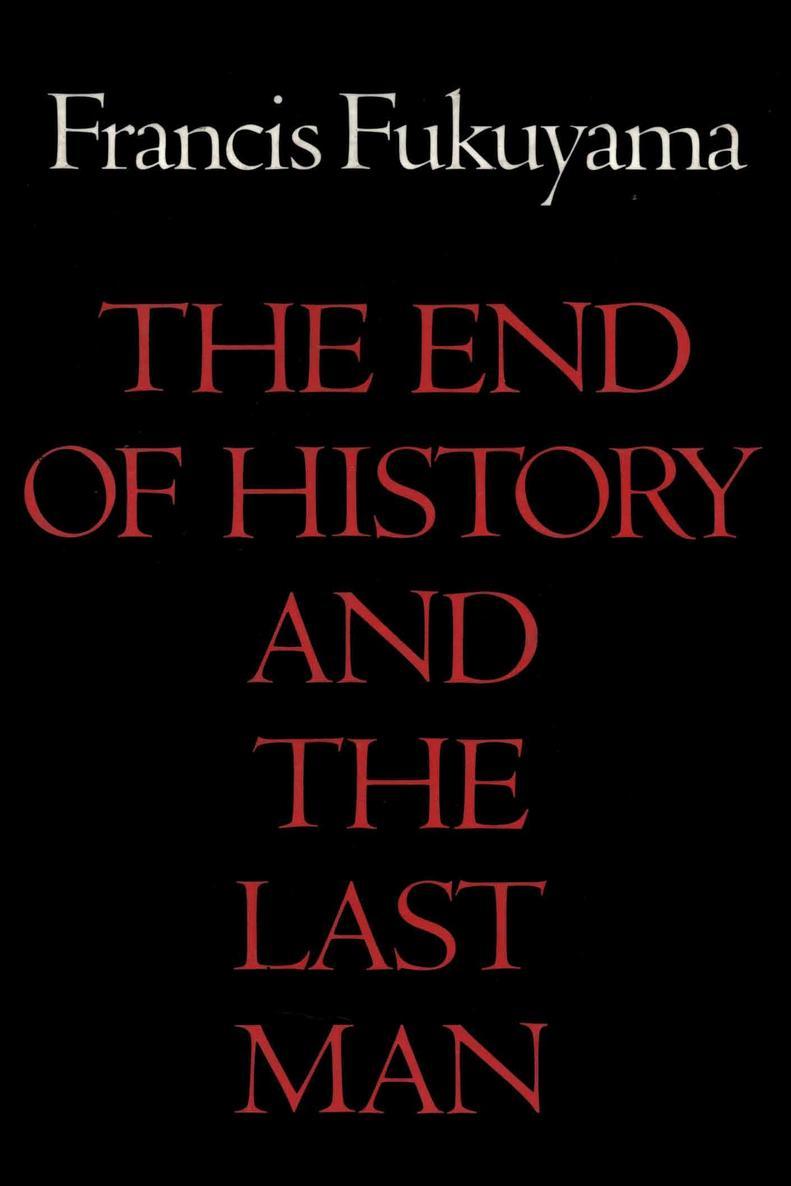
My review:
Fukuyama when writing this book shortly after the fall of communism in 1989 in Europe: “All animals are equal in a liberal democracy”.
Reality a few decades later: “All animals are equal but some are more equal than others”.
That’s the gist of the book and a succinct response to it. But let’s go into a bit more detail.
I’ll start off by saying that the first 2/3rds of this book were painful to read. The cursory explication and utilisation of philosophy, history, sociology, economics, and international relations to make an argument for liberal democracy as “the end-point of mankind’s ideological evolution and [the] final form of human government” made the book seem worthy of a 1st-year university student. Has Fukuyama never left the comfort of his book-and-theory-laden office and ventured into the real world? This quote, for example: “What will produce peace in the posthistorical world… [will be] the specific nature of democratic legitimacy, and its ability to satisfy the human longing for recognition.” Yeah, that’ll do it. We will have peace now forever as long as everybody is “recognised”. Sure.
And also, how can you think that liberal democracy is going to curtail or bridle Machiavellian strategies in politics or international relations? How can you think that real politics (à la Henry Kissinger) is on its way out? How can you think that liberal democracy is going to curtail the imperial tendencies of empires? The fallen, sinful part of human nature will always find a way to subvert any system it is provided with. This isn’t pessimistic or cynical thinking. It’s fact. Just take a look at the rise of Neocolonialism that is riding the wave of supposed independence of countries formerly under colonial rule.
Reading this naive and simplistic book made me wonder whether it was sanctioned by the FBI or CIA to further the imperial designs of the USA. Seriously. Just glance at this quote: “[T]he possibility of a broader historical process leading to the spread of liberal democracy around the world, suggests that the traditional moralism of American foreign policy, with its concern for human rights and “democratic values,” is not entirely misplaced.” American foreign policy concerned for human rights and democratic values? Sometimes, maybe “yes”. But so often, definitely and profoundly “no”.
In the last 1/3rd of the book Fukuyama finally tackles serious criticisms of liberal democracy. Things like:
- the demise of community life in a democracy,
- ensuing boredom especially among the young that may lead to revolt or produce a lack of inspiration for high art and unhappiness in general,
- and that universal equality means universal oblivion of the individual.
This stuff was interesting and this stuff should have made the main sections of the book (even though I don’t agree with a lot of Fukuyama’s subsequent defences). The other content was waffle and should have been summarised in 50 pages.
Ultimately, I guess this is what happens when you choose the wrong philosophy as your starting point (i.e. Hegel) and expect reality to conform to it. Utopia (understood in essence here as liberal democracy) is not the final form of our existence or the end of history on this Earth. It never will be. Surely by now we would have learned this.
To be informed when new content like this is posted, subscribe to the mailing list: